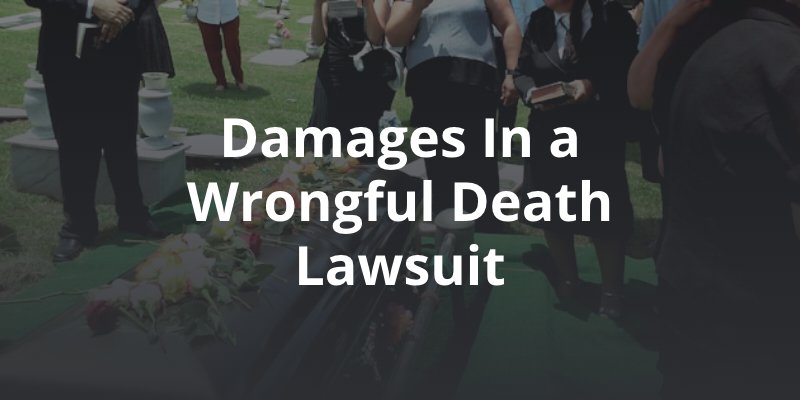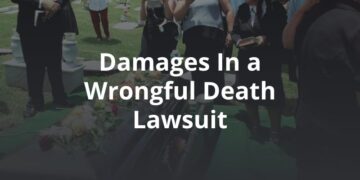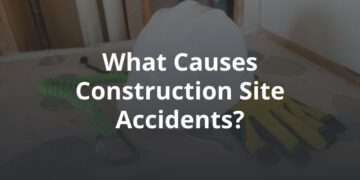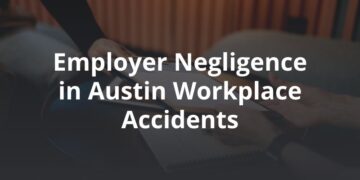
“Wrongful death” is the legal term for a terrible tragedy that means you have lost someone close to you because of another person’s careless, reckless or wrongful act. If you find yourself in this heartbreaking situation, you know that no amount of money will ever suffice to make you whole again. Filing a wrongful death claim, however, could help your family by providing justice and financial compensation (damages) for the various losses you have endured due to the sudden and unexpected loss of life. A wrongful death attorney in Austin can help you understand and calculate the damages your family may be able to receive.
Three Types of Damages
A wrongful death case is a type of civil lawsuit. Much like a personal injury claim, it allows the filing party or plaintiff to seek financial compensation from a defendant, or party accused of causing the injury or death, to become whole again. The Texas civil justice system permits the recovery of three main types of damages in a wrongful death case:
- Economic: compensation for the monetary or financial losses experienced by the plaintiff because of the loss of life.
- Noneconomic: an amount awarded for the intangible effects the wrongful death has had on the lives of those left behind. These are also known as “pain and suffering” damages.
- Exemplary damages: a value sometimes awarded in addition to compensatory damages (those listed above) to punish the defendant and discourage future acts of wrongdoing. In Texas, exemplary damages are only available if the plaintiff can prove fraud, malice or gross negligence (Texas Civil Practice and Remedies Code § 41.003).
Within these three main categories are many individual types of damages that can be sought during a wrongful death case. Each state has unique laws for the types and amounts of financial compensation that can be recovered.
Funeral Costs
Burying your loved one is hard enough without the added stress of how your family will afford the related expenses. A successful wrongful death claim could hold a defendant responsible for paying for these costs, up to a reasonable limit. This can include expenses such as a memorial for your loved one, floral arrangements, a funeral service, cremation or burial.
Medical Expenses
In cases where the deceased person (decedent) survived the incident for any period of time and received medical care prior to the date of death, surviving family members may qualify for compensation for health care bills incurred. This can include emergency services, surgeries, medications, hospital stays, and therapies or rehabilitation.
Lost Financial Support
Wrongful death is not just a significant emotional loss; it can be a substantial financial one, too – especially the loss of a family’s breadwinner. A successful wrongful death case could result in compensation for the lost financial support a family has suffered. This can include the lost wages the deceased person would have received had he or she lived, in addition to lost employment perks, pension or retirement benefits, and lost inheritance.
The Value of Household Services
Whether or not the deceased person received wages for a job outside of the home, compensation may be available for the value of their lost household services. This is an estimated value placed on the everyday tasks completed by the decedent within the home or provided to surviving family members, such as childcare, housekeeping, home maintenance, financial duties and elderly caregiving.
Mental Anguish
A wrongful death in the family can inflict an immense amount of pain and suffering. Surviving beneficiaries may recover compensation for these losses, including their past and future mental anguish, emotional distress, anxiety, depression, grief, mourning and psychological trauma. Noneconomic damages can be calculated with any method desired by an insurance company or jury. A common method used, however, is to multiply the amount of economic damages awarded by a number between 1.5 and 5 that represents the amount of pain suffered by the plaintiff(s).
Loss of Consortium
The loss of a decedent’s love, companionship, guidance, society, emotional support, intimacy and affection can be included in a wrongful death damage award. If the decedent had young children at the time of death, compensation can also be awarded for the absence of parental guidance, support and nurturing.
Exemplary (Punitive) Damages
While not awarded in every wrongful death case, exemplary or punitive damages can be given to a plaintiff if it can be proven using “clear and convincing evidence” that the death resulted from fraud, malice or gross negligence. An example is a fatal car accident caused by an intoxicated driver. In Texas, exemplary damages are capped at $200,000 or twice the amount of total economic plus noneconomic damages, not exceeding $750,000 – whichever is greater. However, § 41.008 lists exceptions to this rule, including if the defendant is guilty of criminal acts, such as intoxication manslaughter or homicide.
How Much Is the Average Wrongful Death Claim Worth?
Calculating the value of a wrongful death case requires a careful analysis of several key factors. There is no “average” settlement or jury verdict, as case results can vary widely. Every case is unique. Factors that may affect value include the expenses incurred before and after the decedent’s death, the decedent’s wages prior to death, the amount of insurance coverage available, and whether or not punitive damages are awarded.
Who Receives Damages in a Texas Wrongful Death Case?
The individuals who can qualify for financial damages in a wrongful death case in Texas depend on who is entitled to recover under § 71.004 of the law. This law states that damages are awarded for the benefit of the surviving spouse, children and parents of the deceased. If these individuals do not exist or do not come forward within three months of the decedent’s death, an executor or administrator of the estate can file.
Request a Cost-Free Wrongful Death Case Review
The premature death of a loved one is an egregious loss that can never be entirely made right. However, if your loved one was killed in a preventable accident in Texas, filing a wrongful death claim can give you some measure of justice and closure. It can also make it easier to move forward by providing compensation for related losses, rather than making you pay out of pocket. Your loved one’s life is irreplaceable. At FVF Law Firm, our personal injury attorneys in Austin know what you’re going through after this immeasurable loss. Contact us and we will educate you on your legal rights to help your family make informed decisions moving forward. Call (512) 640-2146 today for a free, no-pressure consultation.





